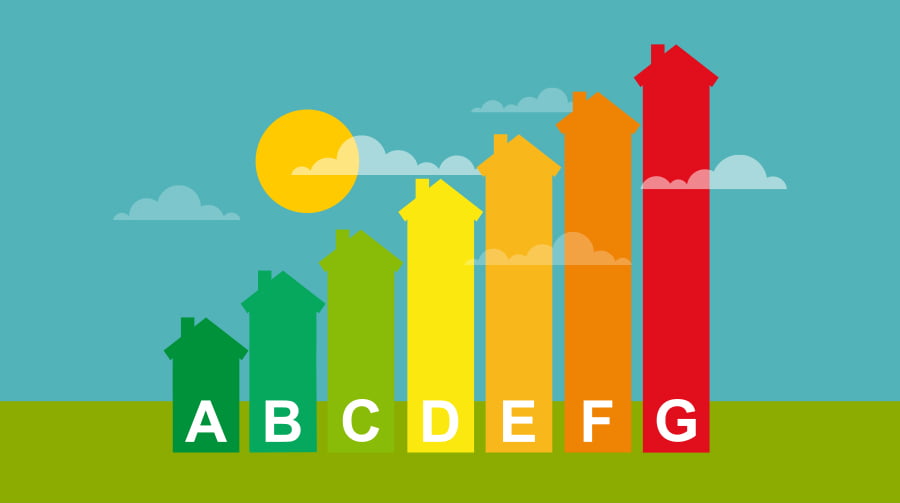Display Energy Certificates (DECs) were created to show the energy performance in public buildings, including schools and educational institutes. They are a requirement for any building occupied by public authorities that is over 250 square metres. Any required building that doesn’t have a DEC is liable to receive a fine. But what are they for and how can you make sure that, if you need one, you know how to get one?
A DEC is designed so that a building’s energy efficiency can be determined at a glance. They are rated A to G, with A being the most efficient and G the least. They are very similar to the energy efficiency rating given to electrical appliances. Energy efficiency is established by measuring a building’s performance and services.
When you have a DEC, you are also legally required to have an advisory report. The report details how much energy you use, where it is used, and where you can reduce energy usage and save money. It also demonstrates how the energy performance in your building could be improved by suggesting opportunities to optimise energy usage.
Your relevant district council may occasionally check that you are complying with the legal requirement of having a DEC. If you fail to display your DEC, then you could face a £500 fine, with an additional £1000 if you lack an advisory report. Remember that the DEC needs to be displayed at all times in a prominent place, clearly visible to the public.
You’ll need to renew your DEC, but how regularly depends on the size of your building. For buildings smaller than 1000 square metres and larger than 250 square metres, a DEC lasts 10 years. For any building over 1000 square metres, however, a DEC will only last 1 year. Advisory reports last for seven years. Keep in mind that if you are on a large campus with several buildings under 1000 square metres (such as a university campus), then these buildings are measured separately. That is unless the buildings are linked together by a heated space or are served by the same heating or cooling system. Then the buildings qualify as a >1000 square metre building (assuming the combined square footage equals more than 1000).
Remember that DEC only applies to buildings occupied by public authorities. Private organisations don’t have to get one but can choose to if they wish. They may need an Energy Performance Certificate, however, if the building is sold or rented.
But what if you want to update your DEC? Perhaps you’ve been reading up on energy efficiency on our blog and decided to implement some green energy ideas? If you need an update or simply need to get a DEC for your building, you can contact Zenergi to help you out. We only use fully accredited and experienced DEC assessors who are all DBS checked. In order to give you a DEC, we need to perform several checks. We’ll visit your premises and process and validate the previous year’s utility invoices. Once we have collected all the relevant data, we input that information into government-approved software. We then produce a thorough advisory report detailing all the potential savings your building/campus could be making. Lastly, once we have sent the DEC and advisory report to the official government database, we will send both to you in a format convenient for you.
A DEC and an advisory report are more than simple compliance, they can help your business take control of your energy efficiency. The advisory report offers the ideal target areas to increase energy efficiency and conservation, which in turn will help reduce utility costs for the organisation. If you have any questions about DEC or any other energy compliance regulations, please feel free to get in touch via our contact page and we’ll be happy to help.








